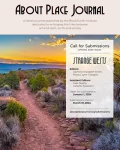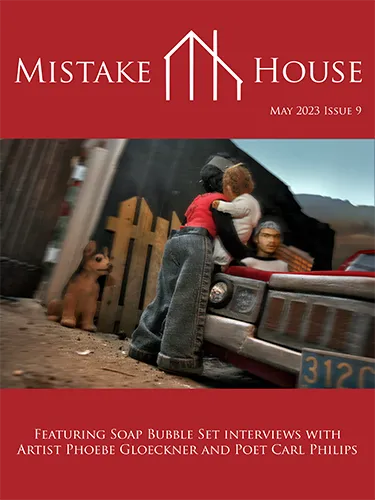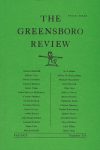ABOUT THE ORGANIZATION
Pan Writers Caravan is an African-based literary arts (all genre) caravan advancing word-culture integration/civilization/diversity/beauty among young & established talents through personal essays, fiction, hybrid, poetry, reportage & more.
ABOUT THE ANTHOLOGY
Our themes for our literary arts anthology, titled African Literary Arts: One Contemporaneous Anthology Celebrating the Global Diaspora (including African culture & society but not limited from circumAtlantic transpositions of United States Africa & African America/African Haiti & Dominica, African England & Eastern Europe as well as African Asia, etc.) are celebratory, variegated, ubiquitous, and unifying of Africa: spanning the beauty of African sex & sexualities, food & cuisine, rivers & mountains, rituals & dialects, tribes & politics, spirituality & morality. This multi-genre collection, numbering tentatively 350-450 pages in length, will include prosodies of hybrid narratives & short story, memoirs & personal essays, poetry, artwork and several other literary keepsakes, nuggets and gemstones.
Lived experience, readership and scholarship in the plethora of Africa & African Diaspora Literature & Literary Arts are held in utmost esteem and highest regard; established, the Editors remain open to all shared experiences of African Diaspora globally deemed of creative possibility to this subjective readership, seeking works beyond the “canonical” or even expected measures taken literarily in equal focus (African National canons considered and surveyed) upon the newly established “anthological.” Moreover, the Editors will be equally intrigued, in balanced coexistence with more traditionally informed instances of writing & other creative endeavors, with these implied instances of the experimental in submissions, and perhaps relatedly & especially ones creating new traditions &/or experimental divergences from the “norms,” identities inclusive albeit never limited to Disabled, Queer, Femme, Low Income &/or other voices speaking from marginalization for this particular anthology of Africa Diasporic Literary Arts, as it were.
Such as balancing singing & drum parts in tribal celebration circles in African communities globally, we hope to join together with our future Contributors, gleefully taking heart and educated by our Submitters as a whole, to create one, quite powerful musical number of which to bear witness as one. These writings, for which notions of “quality” surfacing from the readers here & there, however apparent, seek actively and perseveringly to complement the distinguished & acclaimed beauty of the quite musical writing established by Contributors of this African Diasporic anthology in & of itself, compelled to blossom whilst preserving itself: onward & upward, globally & thus humanly, harmoniously. Together.
Submission Requirements:
Times New Roman font in 12 point size; double space for prose when possible; must be original works of literary art; must be previously unpublished or anthologized work
Length & Number for Each Genre
A) Poetry—40 lines or fewer, maximum of three poems each submission
B) Short stories—maximum of 2,500 words, one story per submission
C) Essays—maximum of 2,000 words, one essay per submission
D) Hybrid Narratives—maximum of 2,000 words, one narrative per submission
E) Flash Fiction—200-500 words; maximum of three flashes per submission
F) Artwork & Visual Poetry: maximum of one page formatted per submission; PDF format accepted & preferred; must constitute original artwork without copyright
Entries will be submitted under the appropriate section of creative work in Submittable with the payment of a small, standard fee of $5 per submission (solely to help finance operating costs, fees & advertising for anthology). Please only send your submission as an attachment in the form of Microsoft Word Document (or: potentially PDF, in the case of Artwork & Visual Poetry) under the appropriate genre form. Although not a strict requirement: it is generally common practice for the subject line of the submission in the Submittable interface to include: Title of Submission by Contributor’s Publication Name (for example: Africa by Mbizo Chirasha). The Submitter will be prompted to include a short biographical summary as a requirement in the Submittable interface.
Please note: while the Editors will honor withdrawals of submissions by email & pressing inquiries related to the anthology’s requirements for entrants, anthology submissions by email & paper mail are unacceptable for the purposes of this anthology & will not be received, read or returned back by the editors in any manner.
Multiple genres &/or multiple submissions per Submitter are welcomed, encouraged & thus totally acceptable protocol; however, one will then be required to submit another submission insofar each submission must not exceed the maximum allotment of entries; only one genre entry per Anthology Contributor will generally be accepted for publication, should more than one entry exist & fortunately qualify for inclusion. Finally, there is no guarantee of the Editors’ readership of entries beyond the maximum amount of words or especially number of creative works submitted in an entry which exceeds our maximum requirements, & the Editors reserve the explicit right to leave further word counts of submission entries as unread or otherwise politely inquire for another sufficient payment of $5 per subsequent entry unaccounted for.
We are looking for gut-turning, nerve-nudging and heart-tilting writing & creative endeavors. Please send us the most thoughtful & thought provoking versions of your work and only your very best creatively written &/or artistic response to the African Diaspora globally. Please also submit only grammatically polished work that has been carefully proofread & edited for readability, succinctness, and clarity.
Deadline for Submissions: extended to April 15, 2024, at 11:59pm, Eastern Daylight Time, United States; No Late Submissions Will Be Accepted.
Upon Possible Acceptance:
Published authors agree to the publisher obtaining first serial rights to their work. You as accepted Contributor will be prompted to include a professional cover letter by the Anthology Editors with your 10line tightened Writers Profile or Author Bio, with welcome accompaniment of your professional headshot photo, potentially for the anthology however surely for inclusion in established and extensive creative media online; minimally, $50 in payment for each printed entry and contributor copies of anthology in print & digital form will be provided upon securement of press publication of the anthology by Pan-Writers Caravan.
For pressing inquiries to submission status, including withdrawals of entries, as well as publication offers, publicity & promotion possibilities from official & professional avenues: please direct your needs directly with the Anthology Coeditors:
Mbizo Chirasha (Africa): mbizotheblackpoet@gmail.com
Anthony Ramstetter, Jr. (United States): anthonyramstetterjr@gmail.com
More information and submission link here.









